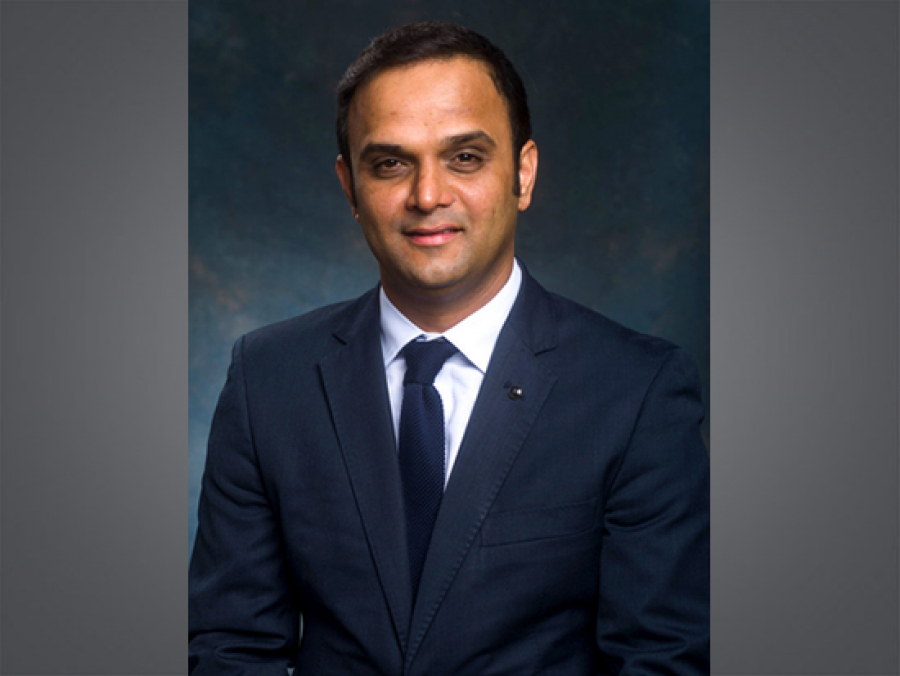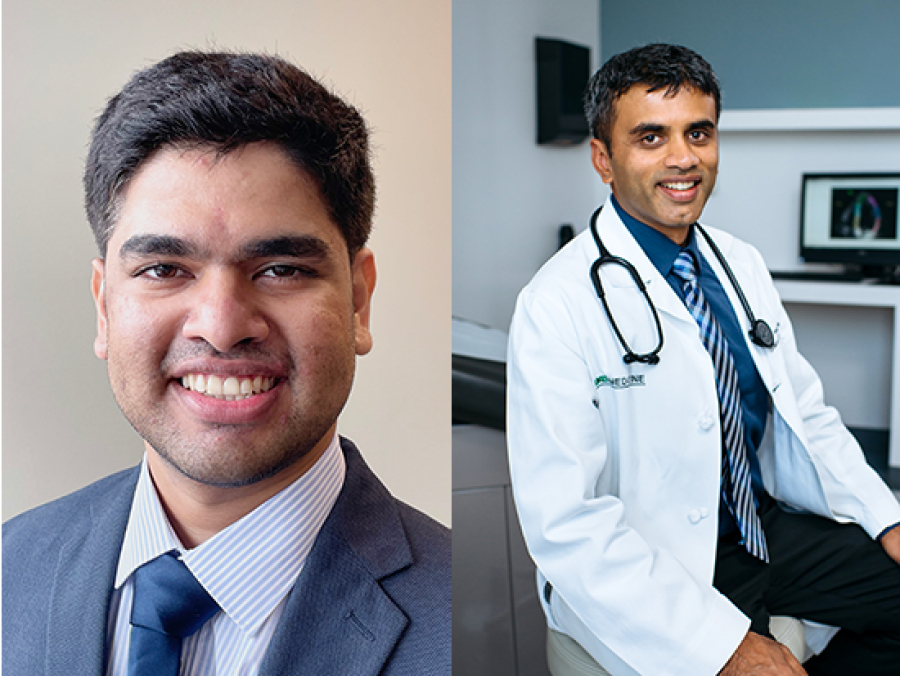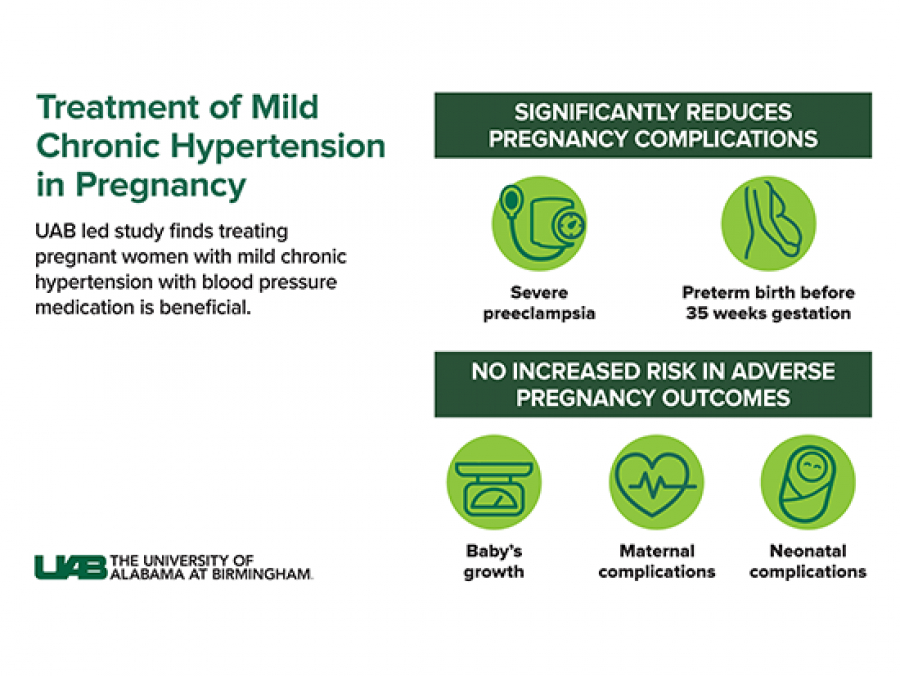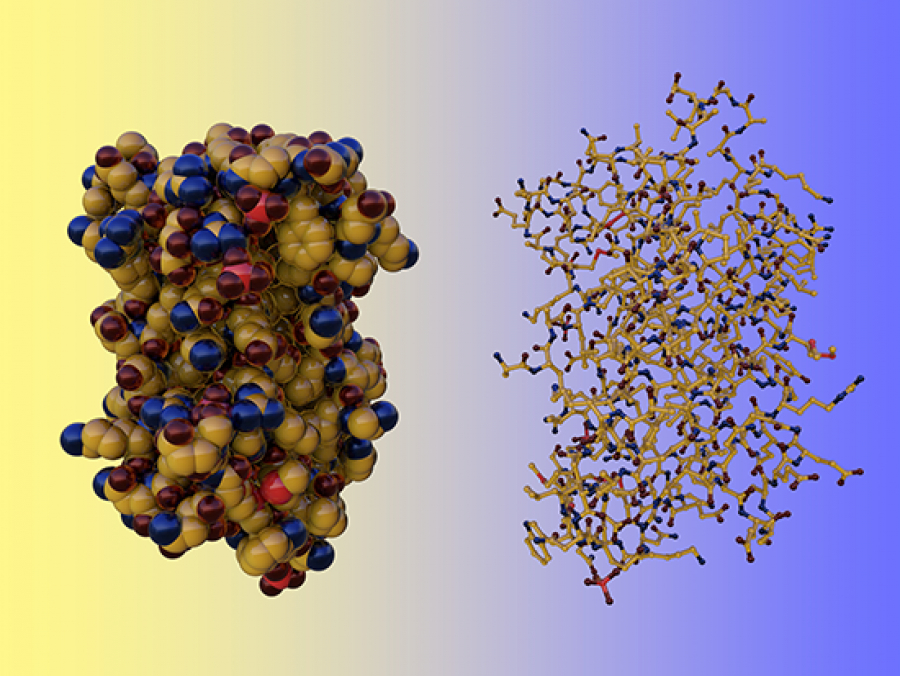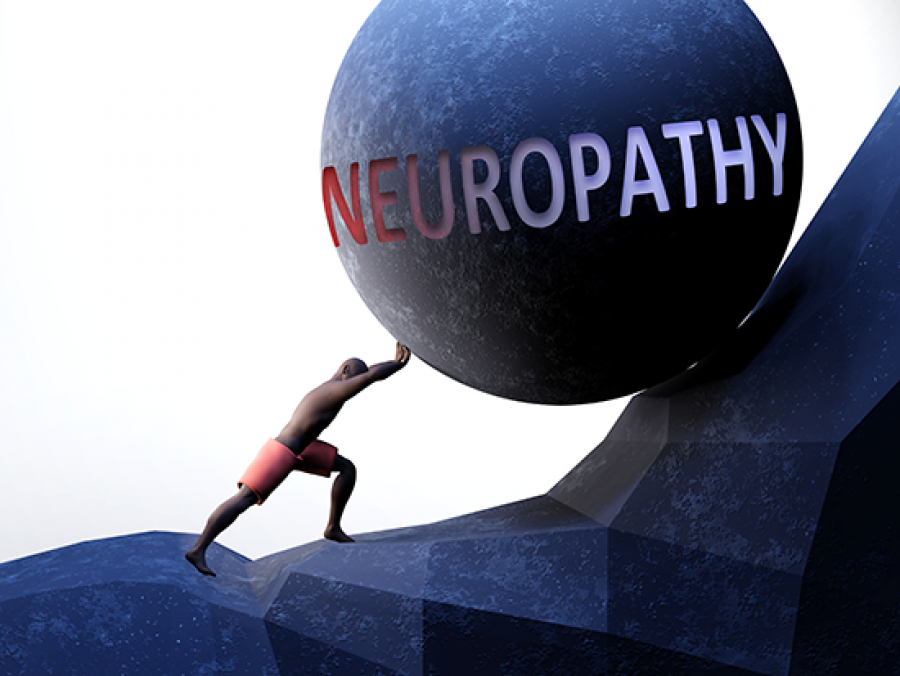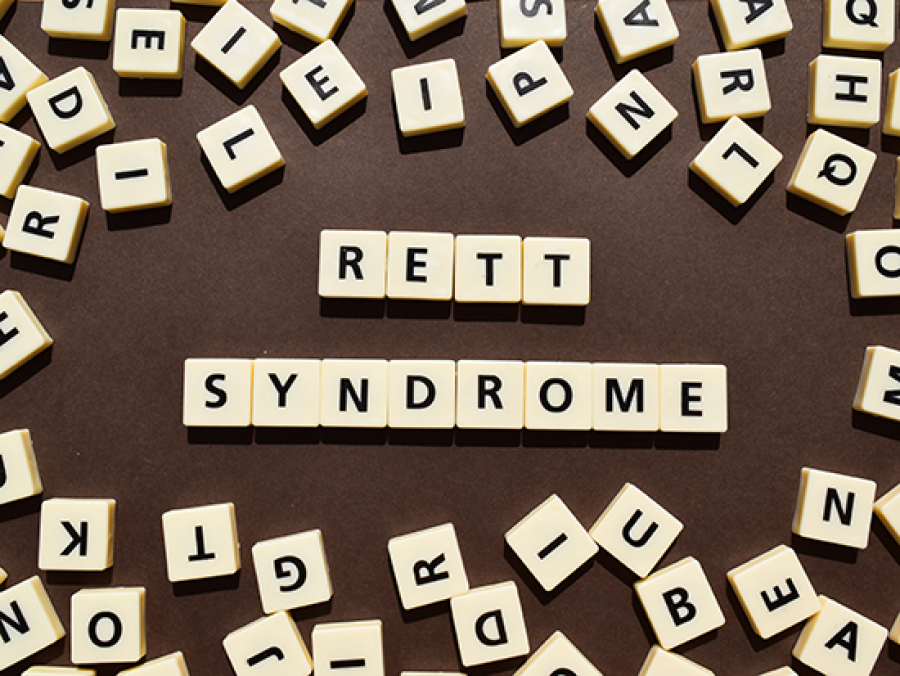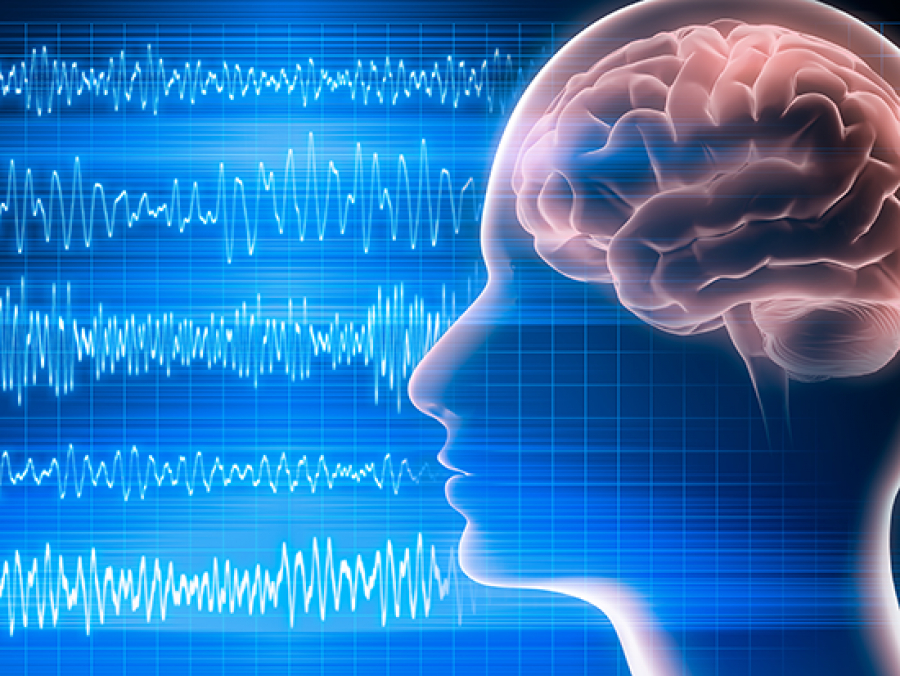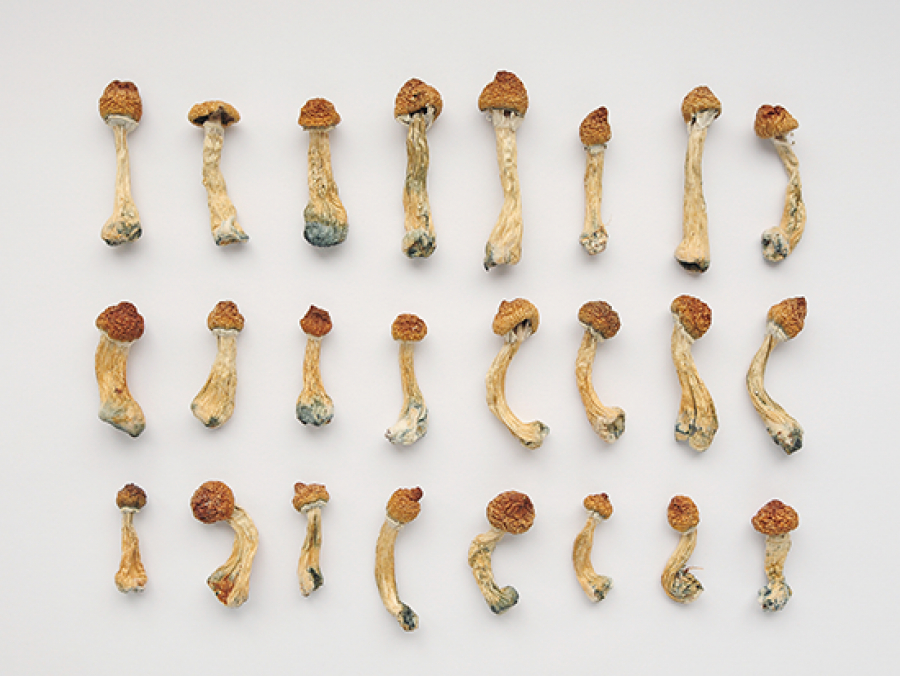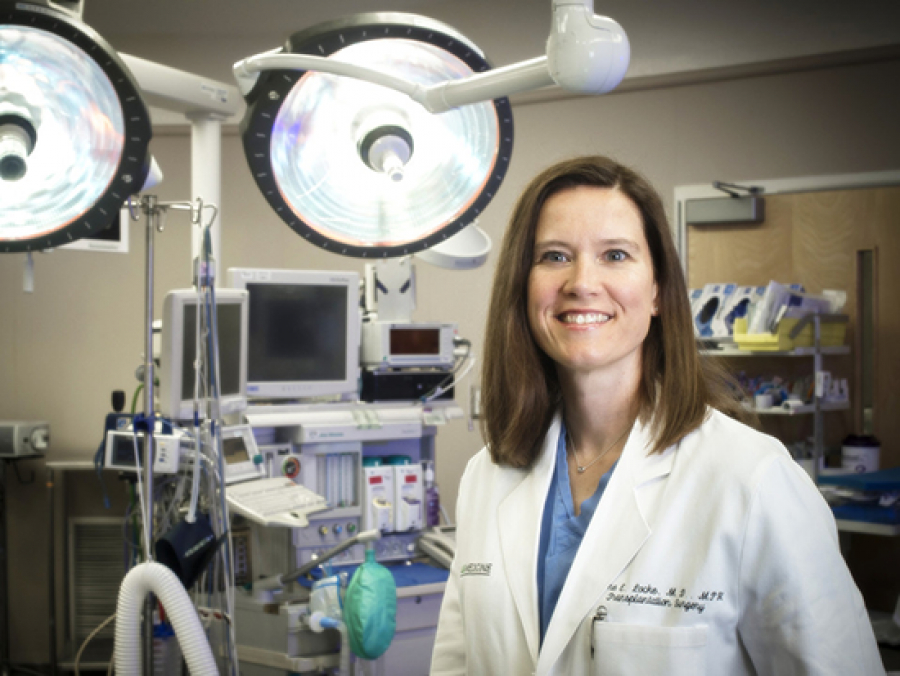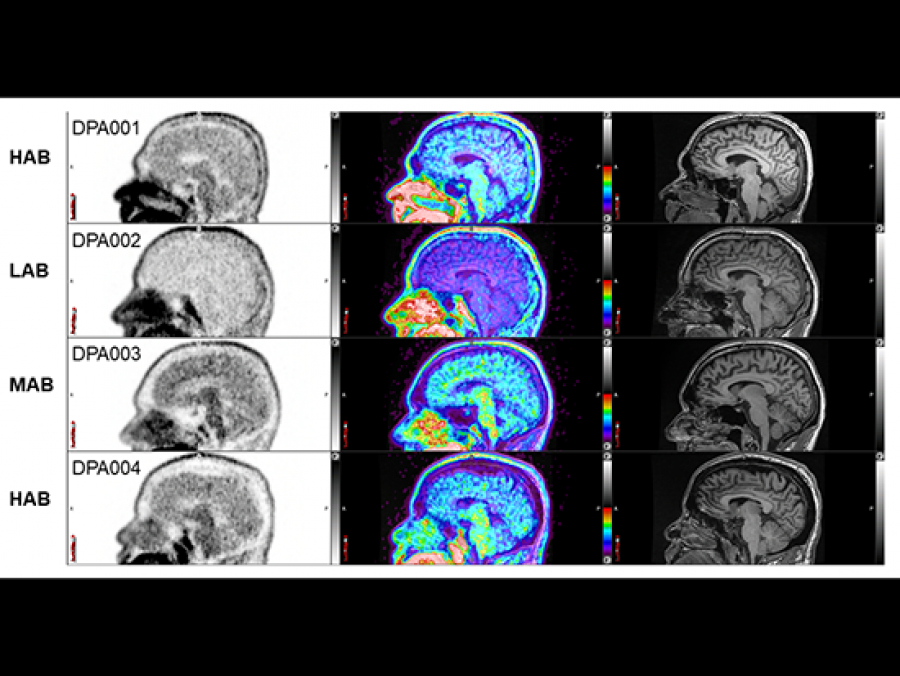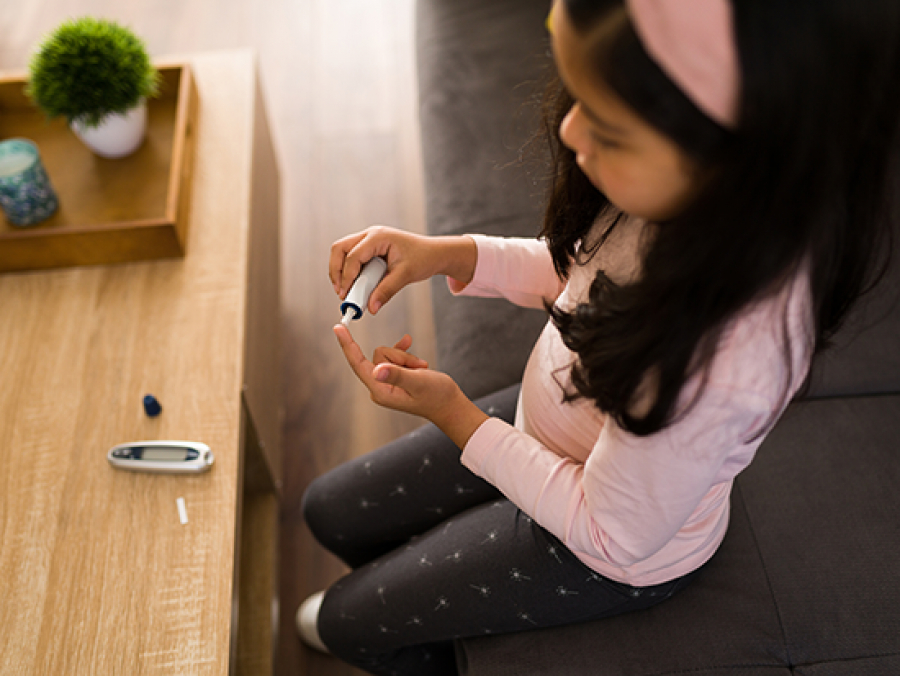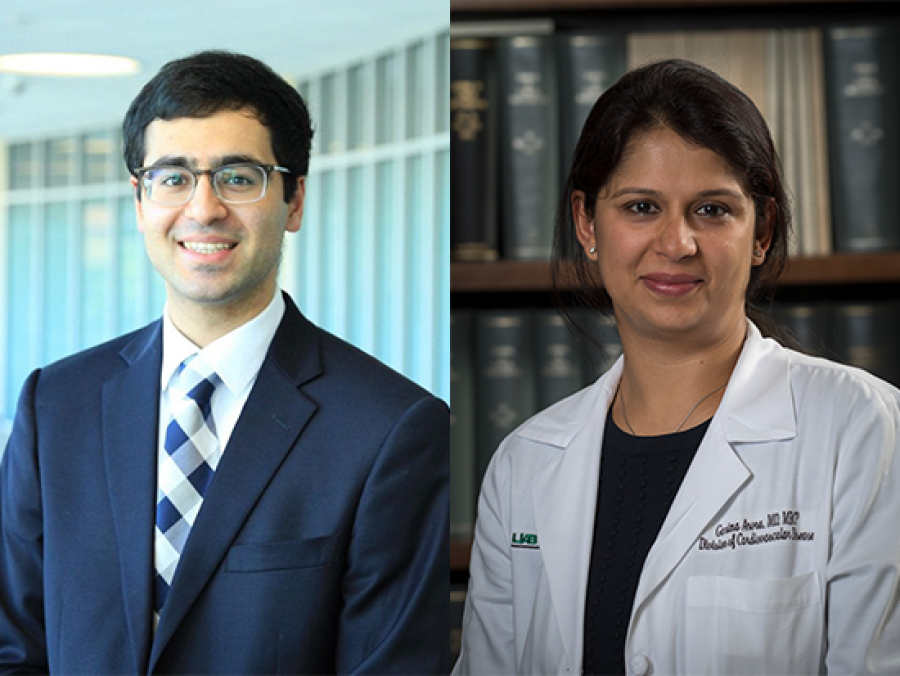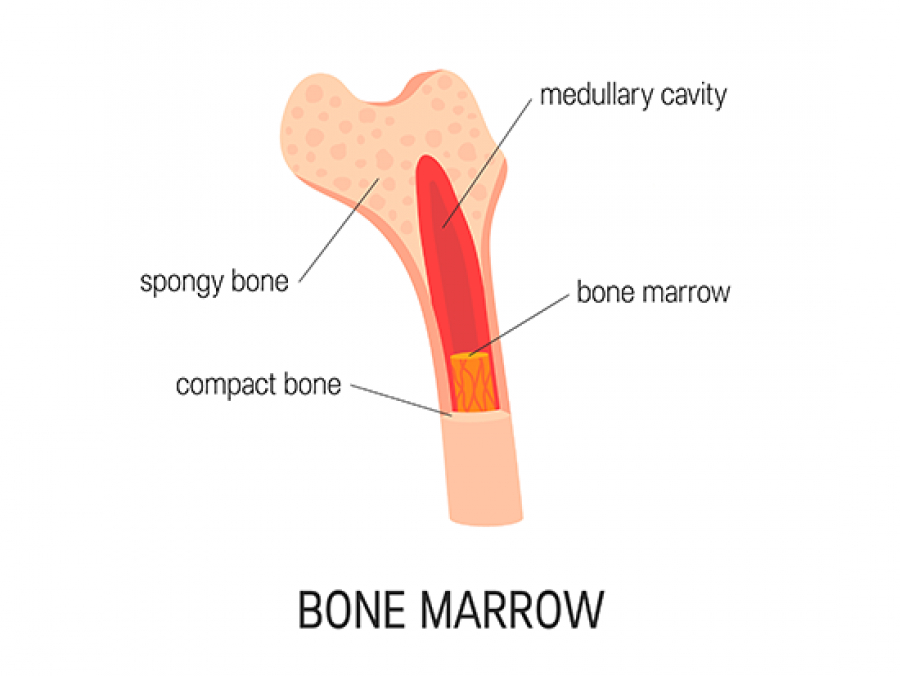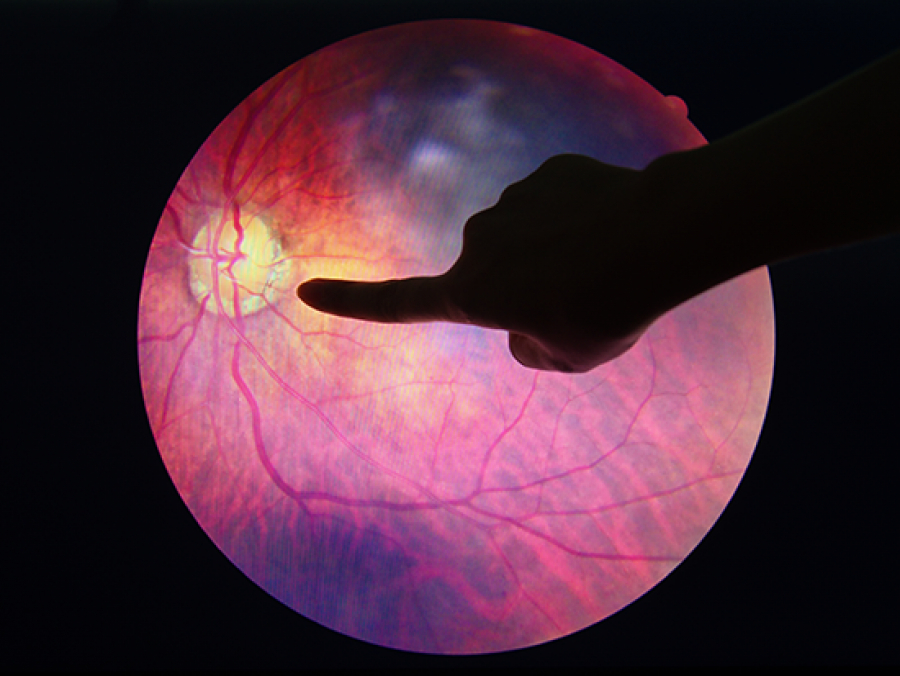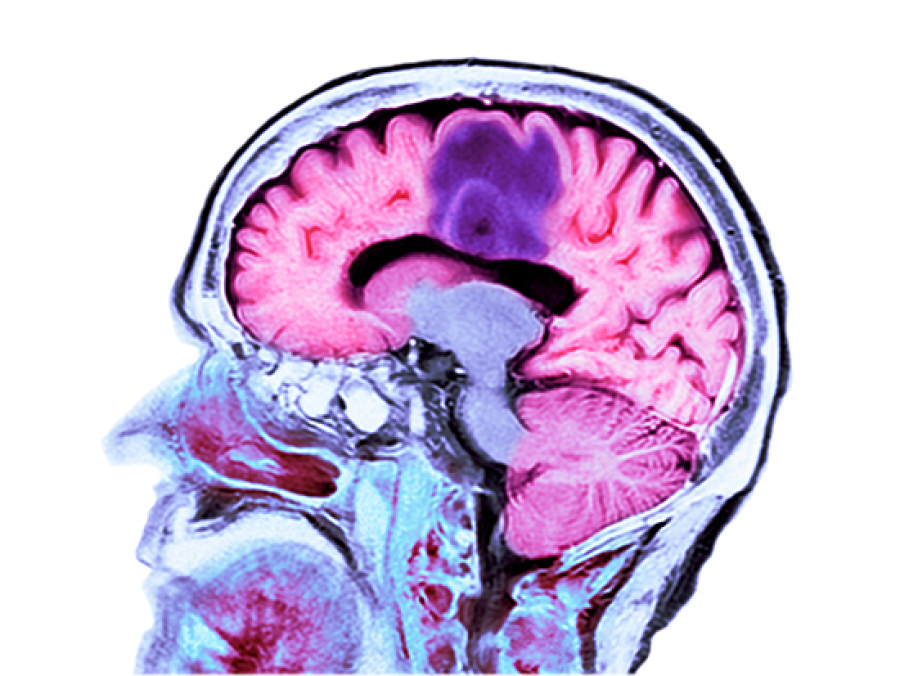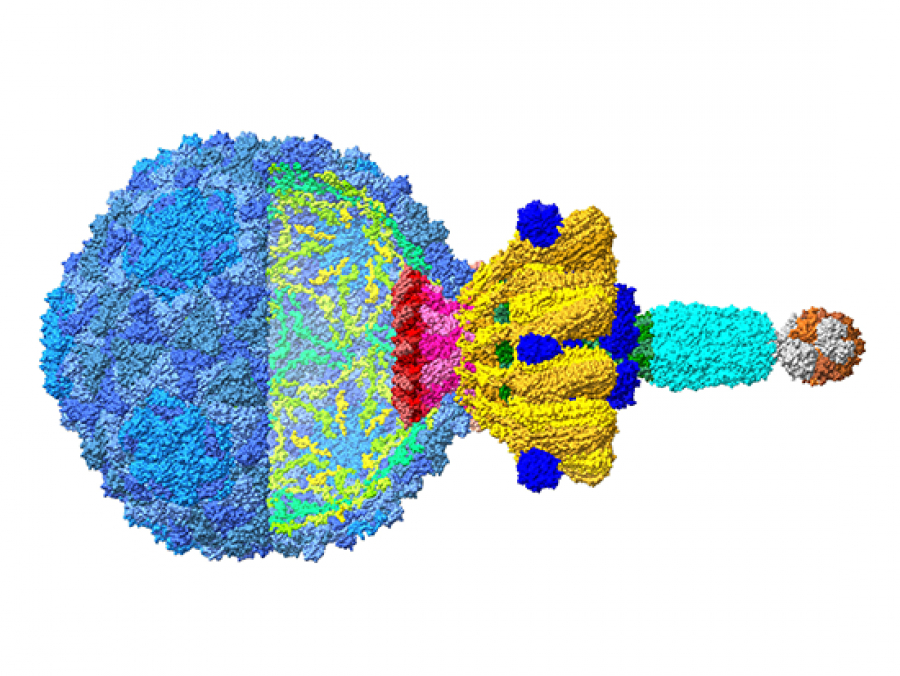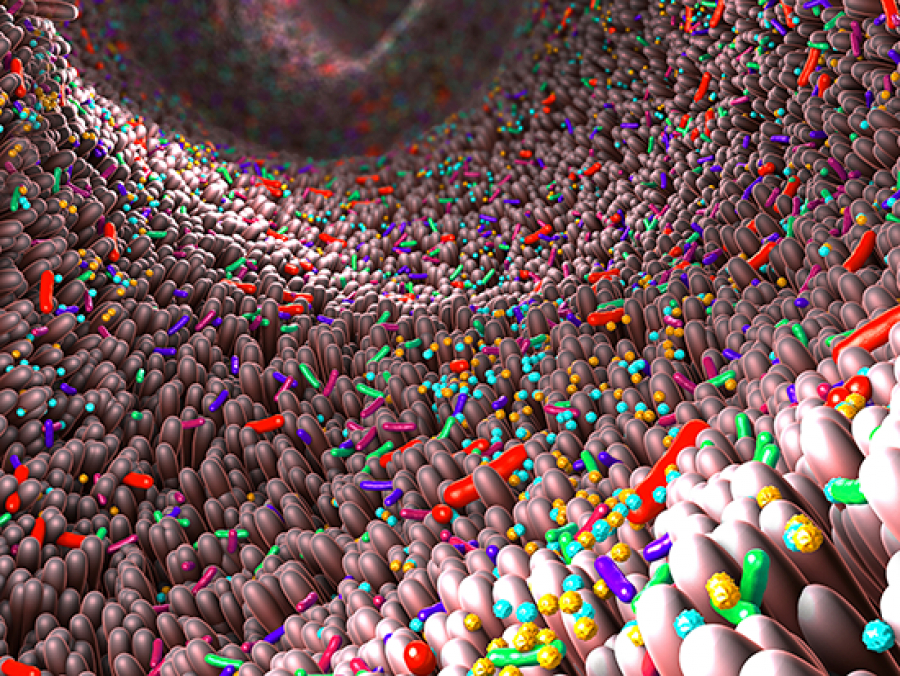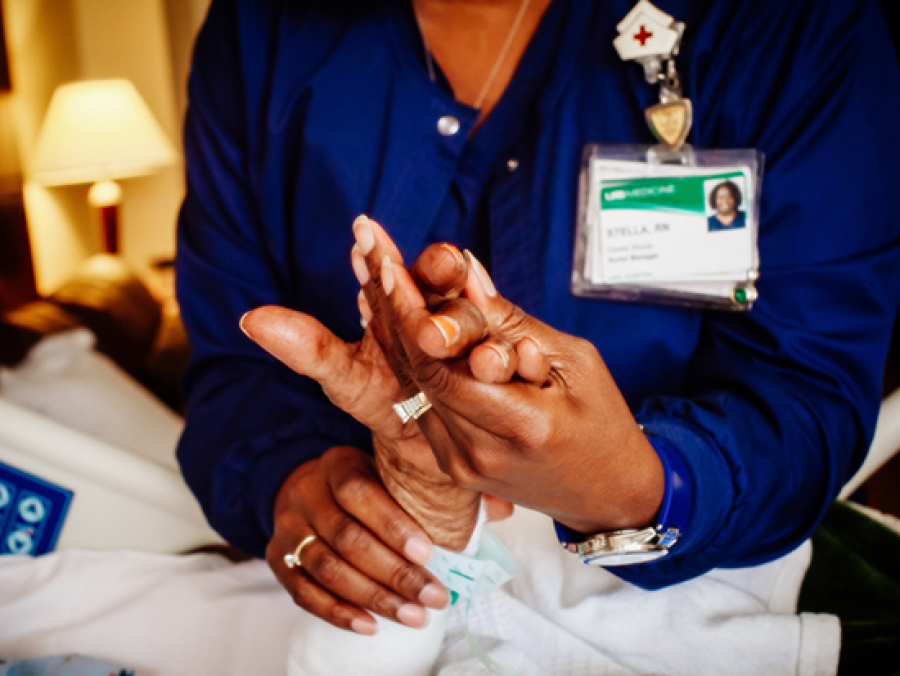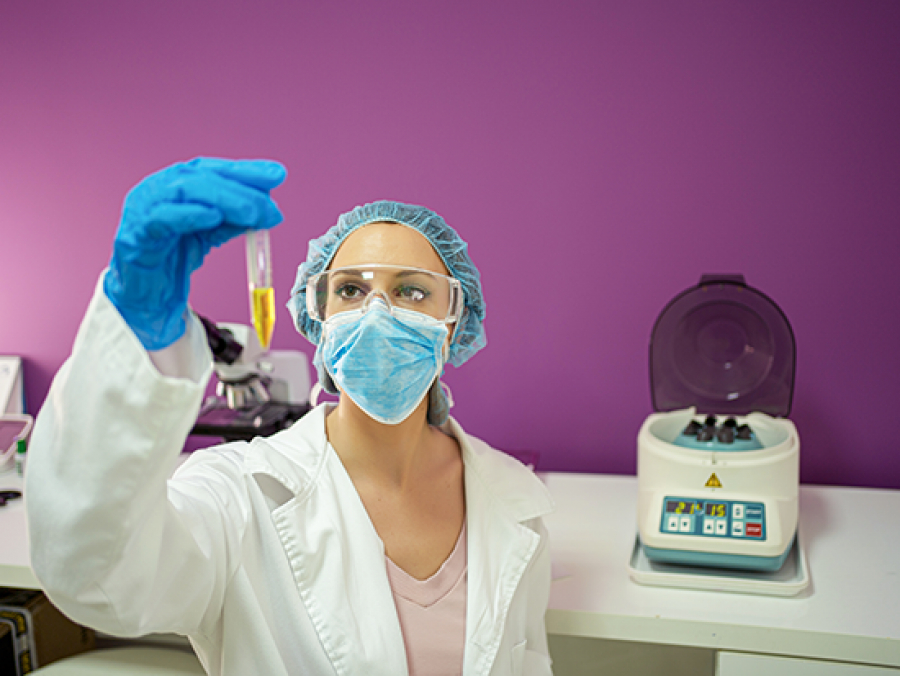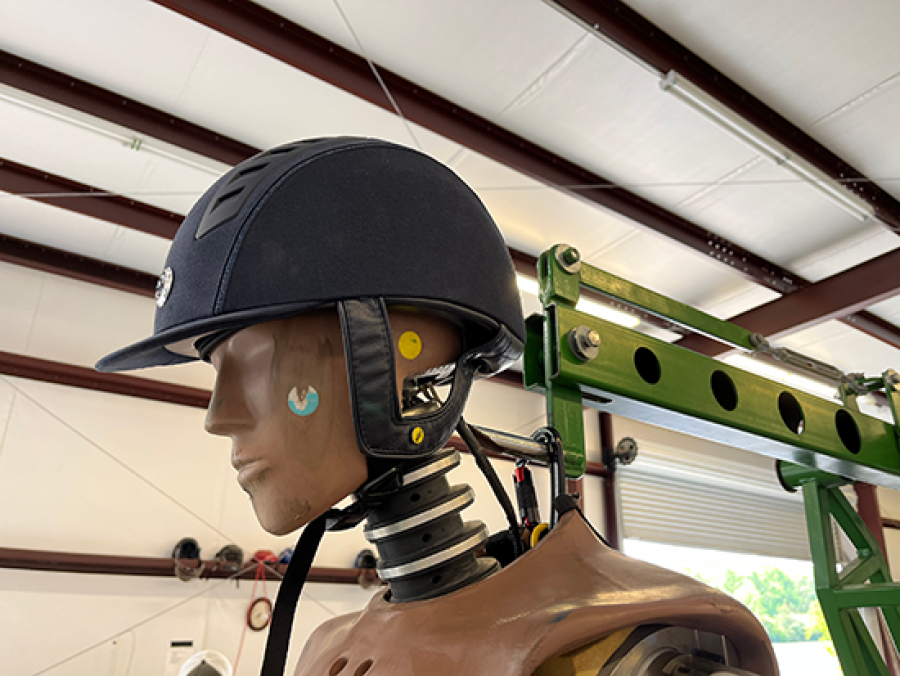Research & Innovation
These nanowires, which can transport electrons to help a microbe make energy, were first described in a Geobacter bacteria; but now nanowires appear to be widespread in both bacteria and archaea prokaryotes.
Chronic obstructive pulmonary disease patients with type 2 inflammation saw rapid and sustained improvements in their disease after treatment with the monoclonal antibody dupilumab.
UAB researchers conducted a study including approximately 20,000 left ventricular assist device recipients and found that women had worse clinical outcomes compared with men across social and clinical subgroups of interest.
Results from the Chronic Hypertension and Pregnancy trial found treating preexisting mild chronic hypertension in pregnant women is safe from both the mom and baby. Results published in April 2022 have since led to changes in national guidelines.
New study indicates that StreetBit has the potential to save millions of dollars annually and reduce pedestrian injuries by implementing such programs on a larger scale.
Knowledge of this previously unrecognized mechanism may aid therapy for patients with interleukin-6 signaling mutations and hyper-IgE Syndrome, or HIES.
Uncovering a pathophysiological mechanism that initiates, transitions and sustains neuropathic pain holds promise for treating neuropathic pain.
Description of this mechanism offers a promising therapeutic target to limit lung injury and death. Lower respiratory tract infections, including bacterial pneumonia, are the fourth-leading cause of death worldwide, with 120 million to 156 million cases and 1.4 million deaths a year.
The drug appears to help strengthen pathways in the brain, improving the ability of neurons to communicate with each other.
Advanced warning of an elevated risk for seizures could help patients take protective measures to minimize the effects, or possibly even stop the seizure before it begins.
The study found that using a vaginal swab was more accurate than using urine for three types of sexually transmitted infections.
These effector memory B cells appear poised for a rapid serum antibody response upon secondary challenge one year later, and evidence shows that the cells in this subset differ from all previously described memory B cell subsets.
The trial will evaluate the effects of low doses of psilocybin on combating demoralization in broader populations.
The federal mandate, which was announced in 2011 and implemented in 2014, limited acetaminophen to 325 milligrams per opioid-acetaminophen combination pill. Acetaminophen is toxic to livers at high doses.
The findings indicate that inflammation is present in the brain early in the disease’s progression, but how inflammation affects disease progression remains unknown.
Having a bacterial infection at the same time as COVID-19 is a greater risk factor for COVID-19 severity and mortality than previously described risk factors such as advanced age, male sex or various comorbidities.
Research funding to UAB from the National Institutes of Health tops $300 million again.
The clinical trial focused on very young children, who have a more rapid loss of the pancreatic beta cells than do adolescents. The trial was constrained to a low-dose level, but showed safety and tolerability and reduced serum glucagon, a secondary outcome.
The research team analyzed the clinical outcomes of more than 12,000 patients who had a TEE-guided percutaneous transcatheter intervention and found that, over the past decade, 3.6 percent of patients who had this procedure had complications.
An overabundance of mast cells, which are important components of the immune system and are produced in the bone marrow, can lead to a variety of health issues.
Diabetic retinopathy is the leading cause of blindness in American adults. The source of this damage may lie in the belly — mainly a leaky small intestine. A novel treatment can possibly prevent or reverse this damage.
The spinoff company, IN8bio Inc., uses proprietary drug-resistant immunotherapy licensed in part from UAB. Glioblastoma is the most aggressive type of cancer originating in the brain.
High-resolution knowledge of structure is a key link between viral biology and potential therapeutic use of the virus to quell bacterial infections.
The funding will support 24 research projects at seven institutions in Alabama.
The study, utilizing the relatively new field of metagenomics, demonstrated an imbalance in the gut microbiome of patients with Parkinson’s disease.
UAB researchers have published an article demonstrating how the term “aggressive care,” used loosely by clinicians to describe care that can negatively impact quality of life for patients with serious illness, is often used to inappropriately label the preferences of African American patients.
The gift will advance the use of induced pluripotent stem cells as a potential therapy for Alzheimer’s disease.
Gould’s helmet research added variables such as fall height and the type of surface struck.
Given the rising rates of obesity and diabetes, semaglutide could be used effectively to reduce the burden of these chronic diseases.
The UAB Marnix E. Heersink School of Medicine leadership team outlined key research focus areas to ensure continued growth over the next five to seven years.

